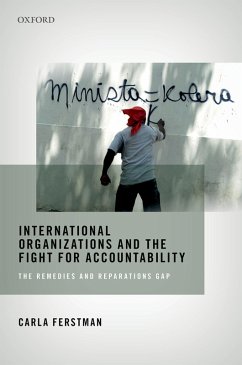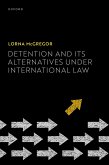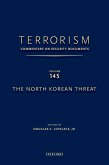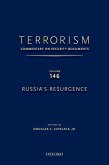International organizations have increasingly taken on state or quasi state-like functions in order to exercise control over individuals and societies, most pressingly in contexts of conflict and transition. Their engagement in peace operations has progressively widened, with mandates now regularly including the protection of civilian populations and, in several new operations, containing peace enforcement responsibilities with active combat duties. This increases the risk that their conduct may infringe human rights and international humanitarian law. This book explores the ways in which the principles of accountability and reparation apply to international organizations. When considering whether international organizations are obliged to afford reparation and to whom it is owed, as well as what it entails, we are confronted with the challenge of understanding how the law of responsibility intersects with specialized regimes of human rights and international humanitarian law, particularly in its application to individuals. The justifications for organizational immunities and other limits on international organizations' responsibilities were conceived to ensure IOs independence from state influences and their capacity to engage in often difficult circumstances. Many, if not all, of these rationales remain relevant today, yet disciplinary, oversight, and judicial structures that exist in state administrations to promote accountability and forestall abuses have only partially been put into place for international organizations. At the same time, individuals affected by their conduct have had no, or only cursory recourse to domestic, regional and international courts and they have not been able to rely on their states of nationality to pursue claims on their behalf.
Dieser Download kann aus rechtlichen Gründen nur mit Rechnungsadresse in A, B, BG, CY, CZ, D, DK, EW, E, FIN, F, GR, HR, H, IRL, I, LT, L, LR, M, NL, PL, P, R, S, SLO, SK ausgeliefert werden.









